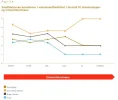US announces F-35 global warehousing assignments
By
Tom Dunlop
-
August 17, 2017
SHARE
Facebook
Twitter
As part of the continued advancement of the F-35 Global Support Solution strategy, the Department of Defense has assigned F-35 regional warehousing capability in the European and Pacific regions to the Netherlands and Australia.
These overseas warehouse and distribution centres will enable the programME to ‘optimise and manage aviation inventory’. The assignments were based on data compiled and analysed by the F-35 Joint Program Office that was collected from Partners Nations, Foreign Military Sales customers and their industries.
Global warehousing data will be reviewed and updated as programme needs dictate the team said in a press release.
Vice Admiral Mat Winter, F-35 Program Executive Officer said:
“Our mission is to deliver and sustain an affordable, capable and combat-ready F-35 weapon system that provides the U.S. and International warfighters with a dominate battlefield advantage.
To do that successfully, the U.S. Services and our allies need to have the right parts delivered at the right time and having a solid warehousing plan helps to make it happen.
The F-35 global support enterprise continues to grow and expand. This initial warehousing assignment is one of many opportunities we will have to assign sustainment solutions for the enterprise.
As international deliveries increase and operations expand, support provided by our international users becomes more and more critical. We will continue to make well-informed, best-value decisions to create an effective and efficient global sustainment system for the fleet.”
The Europe and Pacific warehousing assignments are time-phased such that the first capabilities will be stood up by September, 2019 for the European Region and October 2020 for the Asian Pacific, to provide regional F-35 inventory management.
Lockheed Martin stressed that these initial warehousing and repair technology category assignments do not preclude the opportunity for other partners and customers, including those assigned initial airframe and engine capabilities, to participate and be assigned additional future sustainment workload.
Future assignments will include additional components, Support Equipment, Full Mission Simulators, Autonomic Logistics Information System (ALIS), and Maintenance Training devices, as the fleet grows and the global presence expands.





